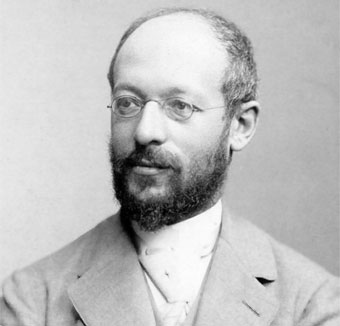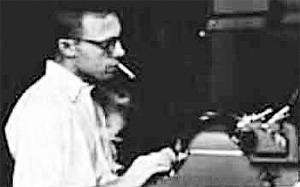[Continuing from my Introduction to Simmel’s Philosophy of Money.]
The first part (of six) of Simmel’s Philosophy of Money is the most abstract and the most philosophical. The whole book never quite descends to earth, but it’s at the beginning that he comes closest to Kantian transcendental-style arguments about how the categories of value affect our cognition of the world, though he ironically uses these in the service of attacking the a priori and theories of the a priori. And the central theme he uses is the idea of commensurability: that money provides the lubrication to reconcile and ultimately synthesize systems of value that are initially entirely distinct and incommensurable. It is without a doubt the hardest-going of the six parts, but it is the necessary foundation for everything that comes after, and possibly the most original and far-reaching.
We assign value to a human life, an animal, a romantic relationship, a friendship, to food, to sex–but by instinct and by the initial circumstances of human culture, these values are only very loosely comparable if at all, and quantifying the values and exchanging between them is something that either rarely comes up or is painful and dispute-ridden when it does. Limited ad hoc systems of exchange spring up, but they are arbitrary and unsatisfactory, and thus impossible to adjudicate consistently. Think of the Iliad and Achilles’ demand for some sort of compensation for the loss he’s suffered when Agamemnon took away Briseis from him. The arguments are vague, the values are ill-specified, and ideas of fairness and logic are inchoate. Value is not given to us by nature; it is human-generated in the messiest manner imaginable:
Their equality before the law of nature, the constant sum of matter and energy, the convertibility of the most diverse phenomena into one another, transform the differences that are apparent at first sight into a general affinity, a universal equality… The value of objects, thoughts and events can never be inferred from their mere natural existence and content, and their ranking according to value diverges widely from their natural ordering.
For Simmel, it is only with the introduction of neutral, intrinsically valueless currency that allows such negotiations to be made. Money is the mediating force that makes incommensurate systems of value commensurable. Since money is free of the bias and specificity of one or another particular system of value, you simply translate your values into quantified monetary figures (or even more concretely, your valuable but particular objects into generic currency), and you have now built an exchange between the two value systems.
Since the basic characteristic of all knowable existence, the interdependence and interaction of everything, also refers to economic value and conveys this principle of life to economic material, the essential quality of money now becomes comprehensible. For the value of things, interpreted as their economic interaction, has its purest expression and embodiment in money.
Only money, in terms of its pure concept, has attained this final stage; it is nothing but the pure form of exchangeability. It embodies that element or function of things, by virtue of which they are economic. It does not comprehend their totality, but it does comprehend the totality of money.
From this wellspring comes pretty much all the phenomena Simmel discusses. What begins as a nearly awe-struck tone at the power of money to absorb disparate values and build commerce grows more despairing and melancholic as the book goes on. Unlike Smith and certainly unlike Marx, Simmel does not see the benefits and deficiencies of modern economies to be separable from each other or from modern life itself. In this he echoes Henry Adams’ model of the dynamo, though Simmel displays less of Adams’ nostalgia and innate pessimism. Rather, his philosophy is one of pure dynamism, like that of Denis Diderot and Charles Sanders Peirce before him. Everything in life is part of a great system that participates in both sides of every extreme. But there is no Hegelian Aufhebung; there is no progression to a new level where contradictions are reconciled. Rather, the tensions and oppositions define the system. A static metaphysical conception of reality, sought by much philosophy as an endpoint of certainty, is a dead-end illusion, guaranteed to produce an “Is that all there is?” reaction in all but the truest believers. Dynamism and contingency are the order of the day.
There are several core components of Simmel’s overall philosophical view to keep in mind:
- Dynamism and processualism
- Fallibility (in the pragmatic sense)
- Holism
- Coherentism
- Anti-teleology
- Heuristic reasoning
This next passage is rough going. I’ve highlighted the key terms, but please skip it if it proves too impenetrable.
The true unity of apprehension is secured only by such a dissolution of dogmatic rigidity into the living and moving process. Its ultimate principles become realized not in the form of mutual exclusion, but in the form of mutual dependence, mutual evocation and mutual complementation. Thus, for example, the development of the metaphysical world view moves between the unity and the multiplicity of the absolute reality in which all particular perceptions are based. The nature of our thinking is such that we strive for each of them as a definite conclusion without being able to settle upon either. Only when all the differences and variety of things are reconciled in a single aggregate is the intellectual and emotional striving for unity satisfied. However, as soon as this unity is attained, as in the concept of substance by Spinoza, it becomes clear that there is nothing one can do with it in understanding the world, and that a second principle at least is necessary in order to make it fruitful. Monism leads on to dualism or to pluralism, but they again create a desire for unity; and so the development of philosophy, and of individual thinking, moves from multiplicity to unity and from unity to multiplicity. The history of thought shows that it is vain to consider any one of these viewpoints as definitive.
To recap: Simmel performs the Hegelian move of showing an opposition in philosophical thought between unity and multiplicity. But where Hegel would progress forward to some new magical category of spirit or logic, Simmel doesn’t introduce any new terms. (For you Hegelians, Simmel is effectively saying that all final philosophy is akin to stoicism.) This is it, he says. Life for us is defined by oppositions that do not get resolved, and for the proof, you don’t look to logic but to our experience.
The structure of our reason in relation to the object demands equal validity for both principles, and attains it by formulating the monistic principle of seeking to bring unity out of multiplicity so far as possible—i.e. as if we ought to end with absolute monism—and by formulating the pluralistic principle of not resting content with any unity, but always searching for yet simpler elements and creative forces, i.e. as if the final result should be pluralism. The same is the case if one explores pluralism in its qualitative significance: the individual differentiation of things and destinies, their separation according to quality and value. Our innermost vital consciousness oscillates between this separateness and the solidarity among the elements of our existence. Sometimes life only seems bearable by enjoying happiness and bliss in complete separation from suffering and depression, and by keeping these rare moments free from any remembrance of less exalted and contradictory experiences. Then again it seems more admirable, and indeed the very challenge of life, to experience joy and sorrow, strength and weakness, virtue and sin as a living unity, each one being a condition of the other, each sacred and consecrating the other. We may seldom be aware of the general principle in these opposing tendencies, but they determine our attitude towards life in our endeavours, our aims and our fragmentary activities. Even when a person’s character seems to be completely oriented in one of these directions, it is constantly thwarted by the other tendency, as diversion, background and temptation. People are not divided into categories by the contrast between differentiation and unification of their life experiences. This contrast exists in every individual, although his innerpersonal form evolves in interaction with his social form, which moves between individualization and socialization. The essential point is not that these two trends constitute life, but that they are interdependent in a heuristic form. It seems as if our life employs or consists of a unified basic function which we are unable to grasp in its unity. We have to dissect it by analysis and synthesis, which constitutes the most general form of that contradistinction, and whose co- operation then restores the unity of life..
Here Simmel pulls out a Kantian backstop to Hegelian reasoning. He argues that baked into our brains are limits of our ability to understand cognition and the world itself. Our scrawny outlook on the world requires us to observe opposing trends in tension and assess reality in heuristic rather than definitive form. This was the move toward fallibilistic science that neo-Kantianism took, divorcing itself from any firmly a priori investigations. Simmel in particular wants to avoid any further abstraction than is necessary (though as seen above, quite a fair bit appears to be necessary), because abstractions only retain the ability to match up to reality when they remain connected to some general conception of everyday lived experience as it is lived by a large proportion of people, not just a few philosophers sitting in Jena. What are the abstractions with which we deal with everyday? More than anything else, they are financial. We may experience via Kantian categories, but most people give no thought to them or anything like them. But abstractions of value, as defined and regulated by money, are something we all are forced to deal with, negotiate, share, and be subjected to.
As soon as one realizes the extent to which human action in every sphere of mental activity operates with abstractions, it is not as strange as it may seem at first glance that not only the study of the economy but the economy itself is constituted by a real abstraction from the comprehensive reality of valuations. The forces, relations and qualities of things— including our own nature—objectively form a unified whole which has to be broken down by our interests into a multitude of independent series or motives to enable us to deal with it. Every science investigates phenomena that are homogeneous and clearly distinguished from the problems of other sciences, whereas reality ignores boundaries and every section of the world presents an aggregate of tasks for all the sciences. Our practice excludes unilateral series from the outer and inner complexity of things and so constructs the great systems of cultural interests. The same is true for our sentiments. When we experience religious or social sentiments, when we are melancholy or joyful, it is always abstractions from total reality that are the objects of our feeling—whether because we react only to those impressions that can be brought within the scope of some common cultural interest, or because we endow every object with a certain colouring which derives its validity from its interweaving with other colourings to form an objective unity. Thus, the following formula is one way in which the relationship of man to the world may be expressed: our practice as well as our theory continually abstracts single elements from the absolute unity and intermingling of objects, in which each object supports the other and all have equal rights, and forms these elements into relative entities and wholes. We have no relationship to the totality of existence, except in very general sentiments; we attain a definite relation to the world only by continually abstracting from phenomena, in accordance with our needs of thought and action and investing these abstractions with the relative independence of a purely inner connection which the unbroken stream of world processes denies to objective reality. The economic system is indeed based on an abstraction, on the mutuality of exchange, the balance between sacrifice and gain; and in the real process of its development it is inseparably merged with its basis and results, desire and need. But this form of existence does not differentiate it from the other spheres into which we divide the totality of phenomena for the sake of our interests.
Alongside this pragmatism comes a Quinean holism, which Simmel explicitly declares, painting himself in opposition to the nascent verificationist movement (I have no idea to what extent Simmel was aware of it). In the broadest sense, a system of thought, be it communal values or geometry, gains its truth in respect to the entire system corresponding en masse to reality.
The whole system of geometry is not valid at all in the same sense as are its single propositions. The latter can be proved by each other, whereas the whole is valid only in relation to something external, such as the nature of space, our mode of perception and the strength of our ways of thinking. Individual judgments may support each other, since the norms and facts already established substantiate others, but the totality of these norms and facts has validity only in relation to specific physio-psychological organizations, their conditions of life and the furthering of their activity.
As Quine said, “The unit of empirical significance is the whole of science.” But since we are finite beings, our epistemology is primarily fallible, and if our theories are not informed by this fallibility at the most fundamental level, they lack any relation to reality. Conceptual abstractions can never be said to have a guaranteed relation to reality; at best they are heuristic approximations. (As William C. Wimsatt memorably calls scientific theories, “piecewise approximations to reality.”) Metaphysically, Simmel is more or less a nominalist, believing that no universals (at least none that we can grasp) are sufficient to encapsulate the totality of reality. We participate, Kant-style, in a shared, “objective” space of conceptual abstracta as a tool for understanding the world. But this objective space is a shared social construct, not a metaphysical absolute. So in his most metaphysical passage, Simmel declares his fundamental opposition to the absolute:
Only a relativistic epistemology does not claim exemption from its own principle; it is not destroyed by the fact that its validity is only relative. For even if it is valid— historically, factually, psychologically—only in alternation and harmony with other absolute or substantial principles, its relation to its own opposite is itself only relative. Heuristics, which is only the consequence or the application of the relativistic principle to the categories of knowledge, can accept without contradiction that it is itself a heuristic principle. The question as to the grounding of this principle, which is not incorporated in the principle itself, constitutes no difficulty for relativism, because the ground is removed to infinity. Relativism strives to dissolve into a relation every absolute that presents itself, and proceeds in the same way with the absolute that offers itself as the ground for this new relation. This is a never-ending process whose heuristic eliminates the alternative: either to deny or to accept the absolute. It makes no difference how one expresses it: either that there is an absolute but it can be grasped only by an infinite process, or that there are only relations but that they can only replace the absolute in an infinite process. Relativism is able to make the radical concession that it is possible for the mind to place itself outside itself. The epistemological principles that remained content with one concept and thus excluded the continuing fruitful development of relations ended in self-contradiction: that the mind is supposed to judge itself, that it is either subject to its own definitive statements or exempt from them, and that equally each alternative destroys its validity. But relativism fully accepts the fact that for every proposition there is a higher one that determines whether this proposition is correct.
The absolute signifies a road stretching to infinity whose direction is still marked out no matter how great the distance we cover.
I read Simmel here as laying out a pragmatic ladder akin to that of Peirce, though less rigorously. Where Peirce wanted to ground truth, Simmel is trying to explain how it is that we live. So while Peirce sought to ground truth in a particular scientific method, Simmel seeks to ground value in particular human practices and limitations.
The pragmatic provisionality of our thoughts, in fact, links directly to the need for money: a non-teleological, mediating force with no intrinsic final ends. It is a coping mechanism for finitude.
Reality and value are, as it were, two different languages by which the logically related contents of the world, valid in their ideal unity, are made comprehensible to the unitary soul, or the languages in which the soul can express the pure image of these contents which lies beyond their differentiation and opposition. These two compilations made by the soul, through perceiving and through valuing, may perhaps once more be brought together in a metaphysical unity, for which there is no linguistic term unless it be in religious symbols. There is perhaps a cosmic ground where the heterogeneity and divergencies that we experience between reality and value no longer exist, where both series are revealed as one; this unity either being unaffected by the two categories, and standing beyond them in majestic indifference, or signifying a harmonious interweaving of both, which is shattered and distorted into fragments and contrasts only by our way of regarding it, as if we had an imperfect visual faculty.
These limitations are reflected not only in our cognition but in our will, and our chronic dissatisfaction with stasis. The dynamism of life, which only increases in modernity, is reflected in our need for a system that allows both for familiarity and novelty, in experience as well as in values, the shifts between them being guided by (you guessed it) money.
Life in general is determined by the proportion of these two facts: that we need variety and change of content just as we need familiarity; and this general need appears here in the specific form that the value of objects requires, on the one hand, scarcity—that is to say, differentiation and particularity—while on the other hand it needs a certain comprehensiveness, frequency and permanence in order that objects may enter the realm of values.
The economy transmits all valuations through the form of exchange, creating an intermediate realm between the desires that are the source of all human activity and the satisfaction of needs in which they culminate. The specific characteristic of the economy as a particular form of behaviour and communication consists not only in exchanging values but in the exchange of values.
Money grounds our own abstractions of value. It is a simultaneously an abstract, symbolic, and concrete entity. It has a physical instantiation, but more importantly, it is the thing by which any private and particular value can be quantified in a abstracted, universal manner, enabling us to journey from the subjective to the communal objective.
The projection of mere relations into particular objects is one of the great accomplishments of the mind; when the mind is embodied in objects, these become a vehicle for the mind and endow it with a livelier and more comprehensive activity. The ability to construct such symbolic objects attains its greatest triumph in money. For money represents pure interaction in its purest form; it makes comprehensible the most abstract concept; it is an individual thing whose essential significance is to reach beyond individualities. Thus, money is the adequate expression of the relationship of man to the world, which can only be grasped in single and concrete instances, yet only really conceived when the singular becomes the embodiment of the living mental process which interweaves all singularities and, in this fashion, creates reality.
Money is, bizarrely, both the most universal and the most banal thing (like Spinoza’s substance), the most useful and the most ultimately useless. It concretely cements values in the most provisional and unstable of ways (reflecting, as it does, human judgment).
Norms are the types and forms of relativity that develop among, and give form to, the specific phenomena of reality—whether they are termed ideas, as with Plato and Schopenhauer, logoi as with the Stoics, the a priori as with Kant or stages in the development of reason as with Hegel. These norms are not relative in the same sense as the objects subjected to them, because they themselves present the relativity of the objects. Thus it becomes comprehensible that money as abstract value expresses nothing but the relativity of things that constitute value; and, at the same time, that money, as the stable pole, contrasts with the eternal movements, fluctuations and equations of the objects.
So money is really the best term in which to consider abstractions of reality, because unlike Plato’s forms and Hegel’s stages, money indisputably exists and we all have to deal with it, despite it being the most abstract and undefined thing ever, an empty container for whatever values we choose to put in it. Yet it forms the basis without which modern society would literally be impossible.
At this point, you may be wondering whether money can possibly support the titanic role which Simmel has assigned it. Part of this is due to money’s sheer banality; Plato’s forms just seem a lot more profound because they’re so mysterious. Simmel’s answer to that is to invoke, finally, the sheer consequence of money, in which its concrete importance is made viscerally palpable:
Money is a specific realization of what is common to economic objects and the general misery of human life is most fully reflected by this symbol, namely by the constant shortage of money under which most people suffer.
Take that, Plato.




